
About the Conference | Registration | Hotel Information | Agenda at a Glance | Workshop Sessions in Detail |
Salmon Teachings Honor Our Past and Embrace Our Futures
Educating Through Traditional Teachings and Ways of Life
This year, we honor the dedicated years of hard work of our fellow tribes and Indigenous activists, which has culminated in the removal or drainage of all 4 dams along the Klamath river. These necessary actions will help lead to the restoration of the river habitat, and recreate a home for salmon and other species. The restoration of these waters is an accomplishment and reinforcement of sovereignty; of food, of culture, of history, and of ecological education. We invite you to read more about the Klamath Dam removal project and lessons learned below:
- This year’s salmon run is a celebration along the Klamath River
- No turning back: The largest dam removal in U.S. history begins
- Researchers, tribes, residents prepare for a century of sediment released from the Klamath dams
- If you unbuild it, they will come
Image courtesy of Seventh Generation Fund for Indigenous Peoples
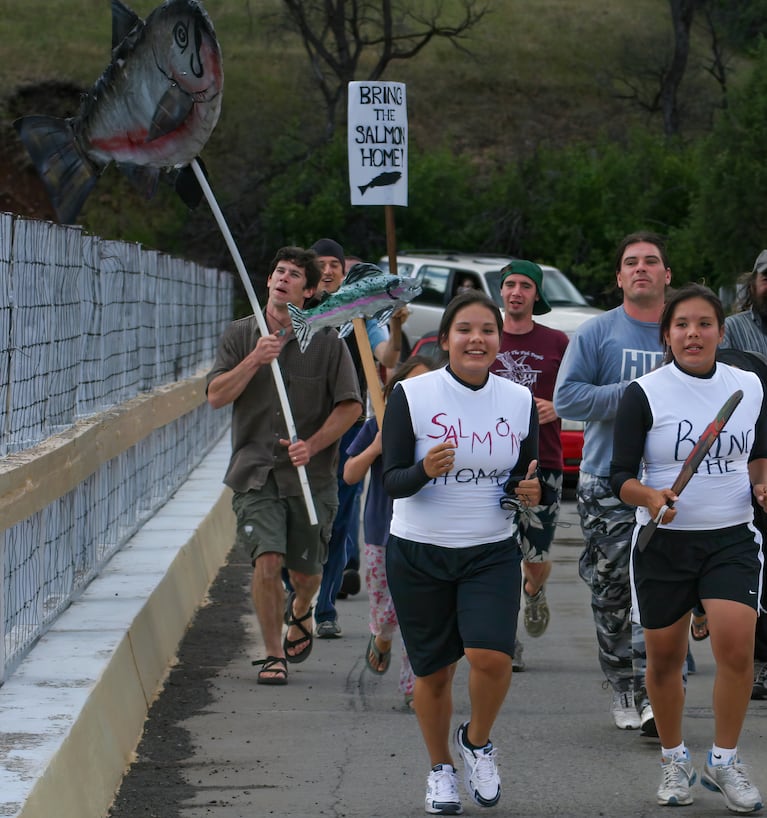
Registration
Annual conference registration is now open! We are offering both single day and full conference options to accommodate the needs and availability of our community members.
Update May 3rd:
Registration is now closed. If you had an incomplete registration and would still like to attend, please contact oiea.secretary@gmail.com. We are required to submit food estimates 1 week ahead of time, so we cannot guarantee meals for late-registrants.
Conference registration includes:
- OIEA membership & voting privileges (w/ full conference registration)
- Conference materials
In addition, conference registration costs include the following meals for each day:
- Thursday lunch and afternoon snacks
- Friday breakfast
- Friday lunch
All OIEA members are granted voting privileges in board elections and in any proposed changes to the OIEA bylaws.
All OIEA members who identify at AI/AN/NH are eligible to be nominated, and to serve on the OIEA board in any vacant position that they’re eligible for.
Tribal board appointments must be approved by the respective tribes.
We are continuing to subsidize conference costs for elders and students who may benefit. If you are a student or elder who is interested in attending this year’s conference, but cost is a concern, please contact the OIEA Treasurer at oiea.treasurer@gmail.com to discuss reduced rate options.
Other Registration Options:
- Single Day (Thursday or Friday)
- Thursday includes lunch and afternoon snacks
- Friday includes breakfast and lunch
- Vendor Space Ticket (does not include admission to the conference)
Hotel Booking Information
You can start booking your hotel rooms at Spirit Mountain today! Call 1-800-760-7977 and share with them that you’re with the Oregon Indian Education Association, Booking ID #4735.
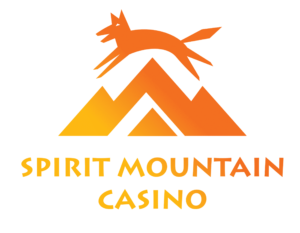
Conference Keynotes
Thursday: Office of Indian Education
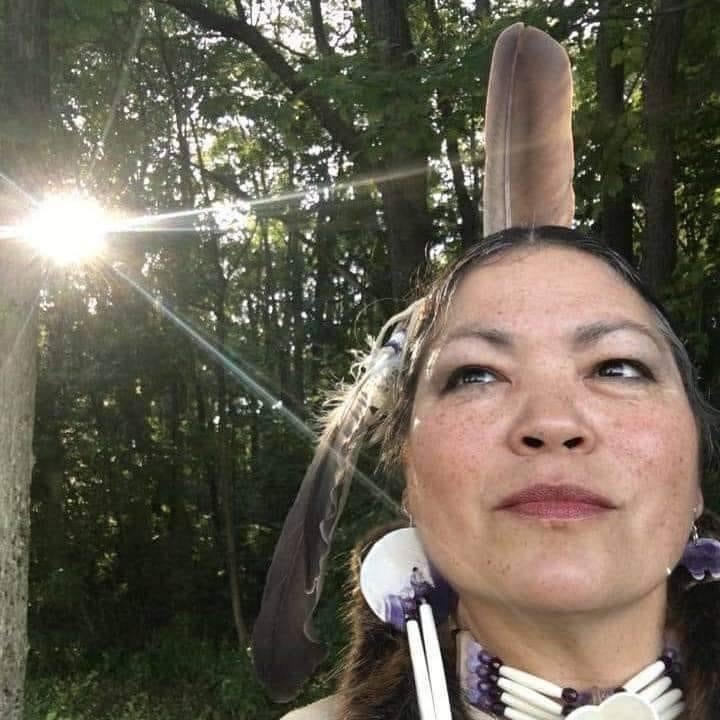
Renée Roman Nose, Native American Student Success Coordinator
Renée Roman Nose, MAIS, citizen of the Cheyenne and Arapaho Tribes of Oklahoma, was born in Eugene and grew up in the foothills of Mt. Hood. She received her MAIS from Oregon State University (2010) and received her BS from Eastern Oregon University (2003). She is the Native American Student Success Coordinator for the Office of Indian Education, within the Oregon Department of Education. Her main duties are to update and promote the AI/AN Student Success plan, both externally and internally, as well as administer the AI/AN State Advisory Committee. Previously, in her role within OIE, she has been responsible for the TAPP program, the OIE Newsletter, the Tribal Language grant, the Navigating Successful Student Outcomes for Native Students and Families grant, the Transitions grant, updating the AI/AN Student Success plan for 2025-2030, and is currently administering the UO Native Student Discipline study and the Native Voices: The Enduring Languages of Oregon Tribes documentary film project.
Friday: Paddle Tribal Waters / Water Climate Trust
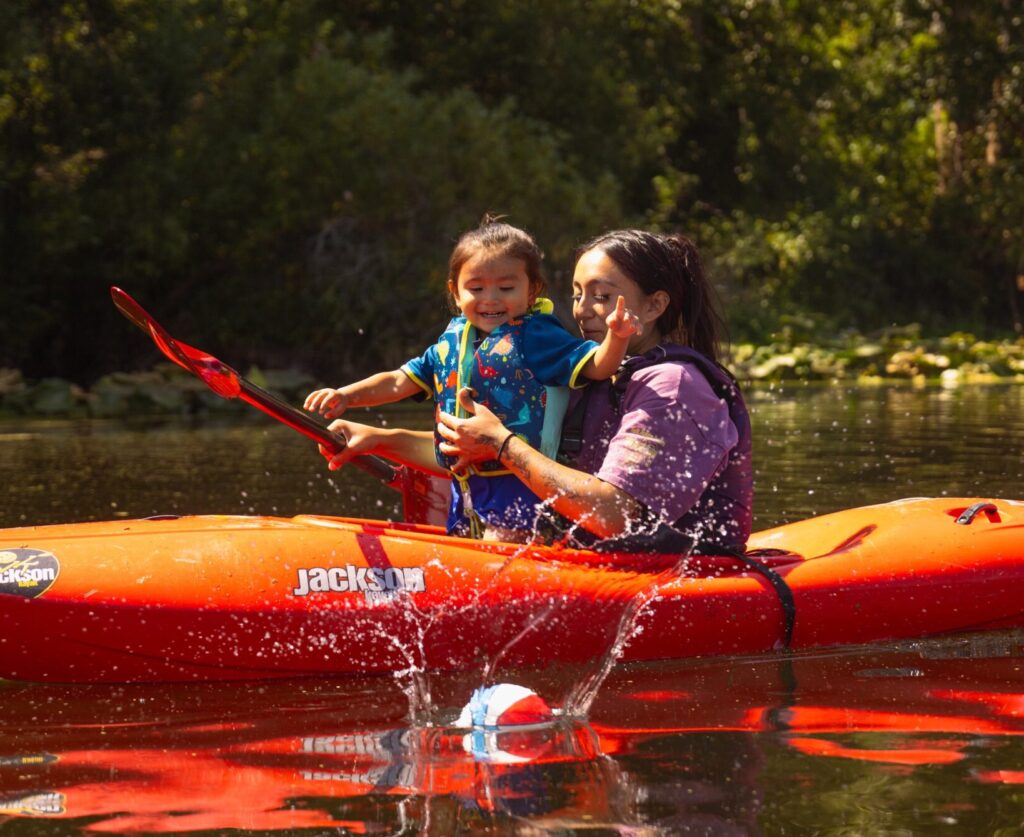
Ashia Grae Wolf Wilson, Co-Founder, Maqlaqs Paddle (Klamath, Modoc)
Ashia is an enrolled member of the Klamath Tribes and is devoted to restoring Klamath Modoc’s homelands and waters. She has worked for the Klamath Tribes Ambodat Department as a college intern, fisheries resource technician and for the Sprague River Water Quality Testing Laboratory as a temporary chemist. Ashia has also co-founded a small local paddling club, Maqlaqs Paddle, oriented around safely accessing and navigating Klamath Modoc’s ancestral waterways.
Ashia currently works for Ríos to Rivers, supporting Paddle Tribal Waters programming. This program trains Klamath Basin tribal youth in whitewater hardshell kayaks while building knowledge and advocating for protecting Klamath Basin waters. Ashia is also a Ríos to Rivers board member, working to uplift a global initiative of river stewardship, navigation, and protection.
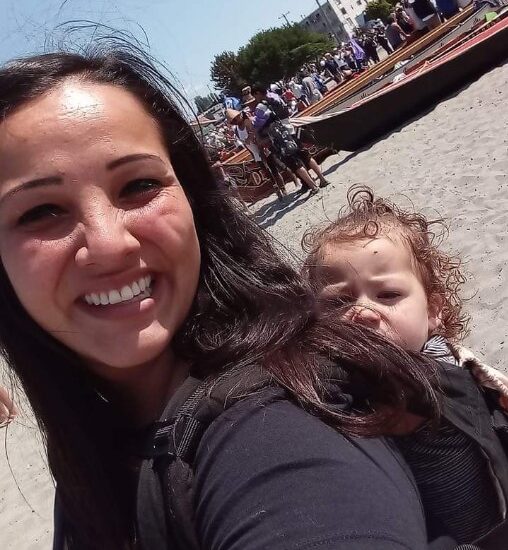
Delia Sanchez, Organizer, Water Climate Trust
Delia is a member of the Confederated Tribes of Grand Ronde and of Klamath, Pit River, Umpqua, and Tchinook descent. She is a dedicated mother to many children and a Tribal rights and food sovereignty advocate currently residing in Chiloquin, OR. She is the founder of the Chiloquin School Garden Project and a co-founder of Maqlaqs Geetni, an ecosystem restoration company guided by Indigenous cultural and environmental principles.
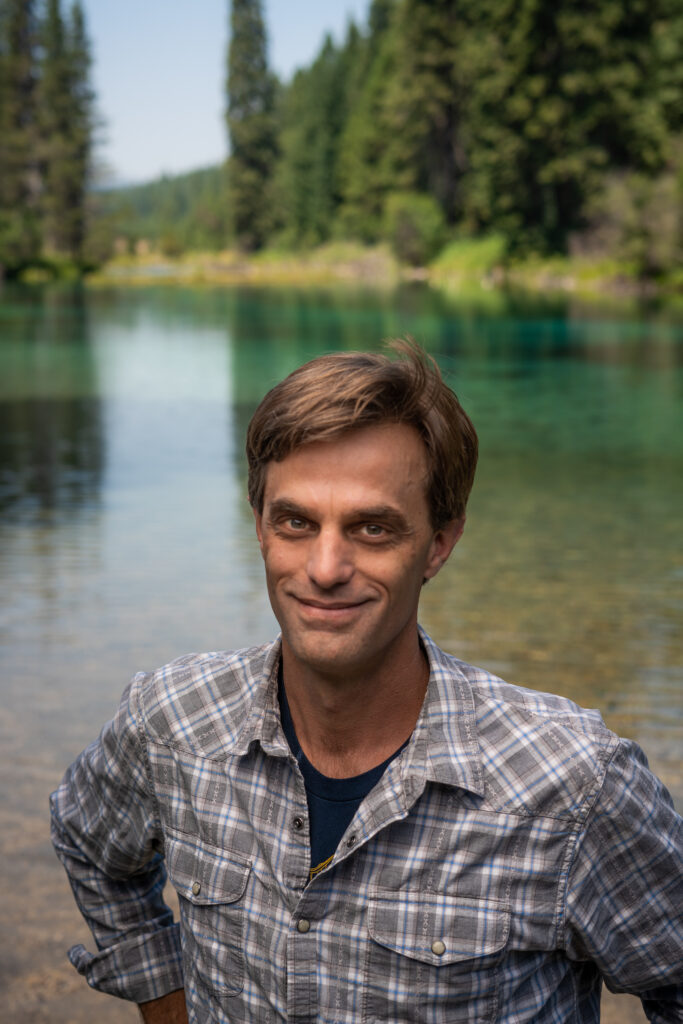
Konrad Fisher, Director, Water Climate Trust
Konrad has twenty five years of advocacy and research experience focused on water, climate, and economic policy. On behalf of Water Climate Trust, Konrad coordinates policy advocacy to protect freshwater ecosystems from excessive water diversions and harmful dams. Previously, as Director of Klamath Riverkeeper, Konrad advanced a historic multi-stakeholder campaign to UnDam the Klamath River. Before that, he
coordinated a successful campaign that secured representation for Native American Tribes within California’s Integrated Regional Water Management planning process. Konrad holds a degree in International Relations & Economics from the University of Oregon.
Agenda at a Glance
| Thursday | ||
|---|---|---|
| 10 AM | Attendee Sign-Ins, Conference Opening, Blessing & Welcomes | |
| 11 AM - 12:15 PM | Workshop Session 1 | |
| Molalla A | Bringing Indigenous Teachings to Public Elementary Schools | |
| Molalla B | Redefining Native Education: Culturally Responsive Teaching Practices for Native Youth | |
| Kalapuya A | Native Voices: The Enduring Languages of Oregon Tribes | |
| Kalapuya B | ITECK, Indigenous Land Stewardship and Youth Engagement at Parrott Creek | |
| 12:15 PM - 1:50 PM | Lunch, Official Welcome and Keynote by Renee Roman Nose of the Office of Indian Education | |
| 2 PM -3:15 PM | Workshop Session 2 | |
| Molalla A | Learning, Unlearning, Relearning: Native Youth Wellness Program’s TH/SH Professional Development Series | |
| Molalla B | Journey of Transformation Curriculum | |
| Kalapuya A | Understanding Special Education Process and Individual Education Plan (IEP) | |
| Kalapuya B | Maqlaqs Paddle – Paddling Together, Standing Together | |
| 3:30 - 4:45 PM | Workshop Session 3 | |
| Molalla A | Educator Roundtable: Collaborative Development of TH/SH Micro PDs | |
| Molalla B | ||
| Kalapuya A | Bring UNITY to your Native Youth Groups | |
| Kalapuya B | Klamath River Dam Removal - Lessons in Civic Engagement | |
| 4:45 PM - 5:30 PM | Email/Hotel Check/Freshen Up break | |
| 5:30 PM - 6:30 PM | Main Session Room: Connection/Networking Session | |
| Friday | ||
|---|---|---|
| 9 AM | Breakfast Served | |
| 9 AM - 10:30 AM | Breakfast and Keynote Panel from the Paddle Tribal Waters / Water Climate Trust | |
| 10:45 AM - 12 PM | Workshop Session 4 | |
| Molalla A | Healthy Native Youth: Culturally Relevant Curricula, Tools & Resources for Adolescent Health for American Indian/Alaska Native Youth, Parents and Communities | |
| Molalla B | Decolonizing Education in the name of Language Revitalization | |
| Kalapuya A | Culturally Specific College, Career and Re-engagement Services | |
| Kalapuya B | On Track to Health and Science Careers | |
| 12:15 PM - 1:30 PM | Workshop Session 5 | |
| Molalla A | ||
| Molalla B | Why it's important to incorporate IKs into the education system | |
| Kalapuya A | Salmon's Agreement - Building Resources: Lifting Indigenous Voices | |
| Kalapuya B | Water Rights & Food Sovereignty: Restoring Access to Traditional Food | |
| 1:30 PM - 3 PM | Lunch, Membership Meeting, Elections and Closing Session | |
Detailed Session Information
Bringing Indigenous Teachings to Public Elementary Schools
Alexandria Warren-Masters, Confederated Tribes of Grand Ronde (CTGR)
Promoting and supporting inclusion for Indigenous youth by bringing teachings and cultural sharing opportunities to public elementary schools. I partner with our local public school that serve Indigenous children that live on the reservation by creating relationships with staff and children.
Sharing the importance of partnering with local school districts and tribes to bring learning opportunities to all youth to create and support inclusive classrooms.
Redefining Native Education: Culturally Responsive Teaching Practices for Native Youth
Cheyanne Heidt – Confederated Tribes of Grand Ronde (CTGR)
This presentation aims to explore the importance of culturally responsive teaching practices for Native youth, highlighting the significance of acknowledging and nurturing their unique cultural backgrounds in educational settings. It will discuss practical examples and research-backed strategies to help educators create culturally responsive learning environments that promote educational equity and honor Native students’ rich cultural heritage.
After attending this session, educators will have a deeper understanding of the historical and ongoing experiences of Native communities – helping the educators develop strategies that promote inclusivity and enhance student engagement. Equipped with knowledge about culturally responsive teaching practices and strategies, educators will feel more comfortable incorporating indigenous knowledge, language, and traditions into the curriculum, thus fostering a sense of belonging and empowering Native youth to succeed academically, while maintaining their cultural identity.
ITECK, Indigenous Land Stewardship and Youth Engagement at Parrott Creek
Ameyalli Manon-Ferguson (Mazahua, Nahua, Osage) and Autumn Martinez
The Cultural Ecology Program at Parrott Creek is an Indigenous land stewardship project centering Indigenous leadership and values at an 80-acre natural area meant for community and cultural use. By engaging highly traumatized youth, community partners, and Indigenous peoples it offers the opportunity for community healing and education.
Attendees will gain information about a community service program that could engage their students, clients, and families. Additionally, they will learn how to: use trauma-informed youth engagement in outdoor education, engage Indigenous youth in Indigenous science, and implement community care and restorative justice into education programs.
Native Voices: The Enduring Languages of Oregon Tribes
Renee Roman Nose, Cheyenne and Arapaho Tribe of Oklahoma; Valerie Switzler, Warm Springs Wasco
ODE, through the Office of Indian Education has collaborated with the nine federally recognized Tribes to create a compelling video which tells the story of what language means to each of the Tribes. Told through community members perspectives, this film is powerful and meaningful.
Attendees will be informed of best practices utilized by Oregon Tribes to promote and preserve the Indigenous languages of Oregon.
Learning, Unlearning, Relearning: Native Youth Wellness Program’s TH/SH Professional Development Series
Roshelle Weiser-Nieto, Modoc/Yahooskin; Nicole Barney, PhD, Klamath Tribes
We will explore the Native Youth Wellness Program’s TH/SH PD series outcomes, lessons, and future plans. Gain insights into our PD framework, its impact on educators, and access valuable resources. Discover significant findings and practical implications for educators from our journey.
Attendees will learn about the Native Youth Wellness Program’s Tribal History/Shared History (TH/SH) professional development (PD) series. After completing four rounds, we are excited to share the outcomes, lessons learned, and our plans for further developing additional professional development sessions. Participants will gain insights into the PD framework, objectives, and impact on educators, along with useful TH/SH resources. In addition, we’ll outline the significant findings from our series, providing an overview of our journey and the practical implications for educators.
Journey of Transformation Curriculum
Birdie Wermy, (Cheyenne & Arapaho Tribes of Oklahoma) Maya Webber and Stephanie Soliz
The NPAIHB partnered with the University of Washington in 2022 to implement the Journey of Transformation (CJOT) Curriculum with an urban Indian School in Oregon. This pilot project began during January 2023 with Sophomores. We have successfully completed part of the curriculum and will begin working with the second cohort of Sophomores during the Spring Trimester. Educators include Birdie Wermy and Maya Webber from NPAIHB and Stephanie Soliz from UW.
Understanding Special Education Process and Individual Education Plan (IEP)
Clifton Bruno -Wasco, Christine Bruno- Basque Comanche Irish
The journey through the Special Education process is difficult and confusing for parents and professionals. Working knowledge of the reauthorized Individuals with Disabilities Education Act of 2004 (IDEA) is vital to effectively advocate and support students with learning challenges and disabilities.
Information will be presented from a cultural and parent advocate perspective with an understanding of the lifelong impact of K-12 education. The goal is to increase positive educational outcomes for American Indian/Alaskan Native students with IEPs, by empowering parents and community member to be effective advocates. Topics such as, how to prepare for school meetings and what you can do,if you do not agree will be discussed.
Paddling Together, Standing Together – Paddle Tribal Waters
Ashia Grae Wolf Wilson, Co-Founder, Maqlaqs Paddle (Klamath, Modoc)
Maqlaqs Paddle Club, with support from Ríos to Rivers, World Class Kayak Academy, and Otter Bar Kayak School, launched a transformative kayak and river advocacy training program for 15 indigenous youth from the Klamath Basin. Paddle Tribal Waters aims to nurture a deep connection to ancestral waters, develop leadership skills, and promote environmental conservation. With support from NRS, we empower the next generation to be stewards of their heritage and advocates for river preservation. Join us in celebrating this inspiring initiative!
The long-term vision of the Paddle Tribal Waters program is to support the youth who participated in the first descent of the Klamath to go on to create tribally led river programs in their communities. Paul and Ashia Wilson from the Klamath Tribes led by example by creating Maqlaqs Paddle in 2018 after their first exchange program with Ríos to Rivers. Maqlaqs Paddle is a kayak club for Klamath Tribes youth based in Southern Oregon.
Educator Roundtable: Collaborative Development of TH/SH Micro PDs
Nicole Barney, Klamath Tribes; Rena Dunbar; Richie Thomas, Roshelle Weiser-Nieto
We are a team of researchers from the University of Oregon focused on developing a Tribal History/Shared History (TH/SH) Micro PD series. We invite educators to our roundtable discussion to explore issues, share firsthand teaching experiences, and gather insights into TH/SH. This session aims to identify barriers and drivers to effective curriculum implementation and guide the development of impactful, relevant micro PD modules through collaborative dialogue. Together, we’ll explore issues, share experiences, and gather insights.
Attendees of this session can expect to gain a comprehensive understanding of the challenges and key factors for successful implementation of the Tribal History/Shared History (TH/SH) curriculum. They will engage in the analysis of real-world data from past TH/SH professional developments to inform the creation of targeted micro PD modules. Participants will delve into the nuances of TH/SH curriculum implementation, share experiences, discuss with peers, and contribute their insights to shape a series of micro PDs tailored to the specific needs of educators and students in the TH/SH context.
Bring UNITY to your Native Youth Groups
LorenAshley Buford, Yamassee of Florida
UNITY is the oldest and largest Native youth network in Country. Learn ways in which your youth can be involved in the National movement to inspire hope through youth leadership development and community service projects. Become a partner with UNITY to receive free training and toolkits for your local youth group.
Learn how to empower your local Youth Group, Native Club or after school program to become part of the movement in fostering servant leadership skills. Participants will learn about the wrap around services and curriculum available to affiliated Youth Council Advisors and training opportunities for their youth. Come share your community knowledge of best practices in engaging native youth in leadership development and community service projects. Learn more about how your students can be involved in the the United National Indian Tribal Youth Inc. UNITY’s mission it to, “foster the spiritual, mental, physical and social development of American Indian and Alaska Native youth, and to help build a strong, unified and self-reliant Native America through involvement of its youth.” In keeping with its mission, UNITY has served the leadership needs of American Indian and Alaska Native youth for 48 years. UNITY is a national organization with over 260 youth councils operating in 36 states. These youth councils represent thousands of Native American youth.
Klamath River Dam Removal – Lessons in Civic Engagement
Konrad Fisher, Director, Water Climate Trust
The historic movement to UnDam the Klamath River provides practical lessons in civic engagement for students, teachers and parents. This workshop will explore ways to inspire civic engagement to protect water, land, food and cultural traditions. We will provide real world examples of civic engagement that led to dam removal and the protection of Tribal water rights and fishing rights.
Healthy Native Youth: Culturally Relevant Curricula, Tools & Resources for Adolescent Health for American Indian/Alaska Native Youth, Parents and Communities
Michelle Singer (she/her | Navajo)
Healthy Native Youth is a one-stop shop for adults seeking to promote inclusive, holistic health & wellbeing for Native teens, parents and communities. The site provides 19 culturally-relevant curricula, tools, training & ready-to-use resources to plan and to deliver effective, age-appropriate positive youth development adolescent health programming in diverse settings.
Participants will improve their practical knowledge of resources and best practices for planning, implementing and promoting inclusive, holistic health and wellbeing for Native teens and young adults. Participants will learn at least three culturally-relevant, evidence-based sexual health education programs for AI/AN youth and support tools to help plan, implement, and grow an adolescent health program in their communities. Participants will improve their knowledge of sexual orientation and gender identity, specifically as it relates to Native adolescent health, in addition to becoming familiar with positive youth development strategies, Native adolescent health and wellness programs, and peer-to-peer support.
Decolonizing Education in the name of Language Revitalization
Justine Flynn – Confederated Tribes of Grand Ronde
In this session, we will look at ways the Chinuk Wawa Education Program at the Confederated Tribes of Grand Ronde has taken on the task of decolonizing what they know of traditional education to create an environment that supports students in learning Chinuk Wawa as well as fully immersing students in culture and place-based curriculum every day.
In this session, I hope that attendees walk away with ideas on how they can decolonize their own education settings to provide a more culturally immersive and responsive environment for students. For those that wish to start or support the implementation of their own language immersion programs or strengthen what they are already doing, I hope they can learn from our journey and gain knowledge that will help them advocate for the bigger picture and mission that comes with language preservation within an education setting.
Culturally Specific College, Career and Re-engagement Services
Cicilio GoodLance Oglala, Sioux and Auna Castellón
Attendees will explore NAYA Family Center’s culturally specific College and Career services and Educational Re-engagement program, highlighting trauma-informed approaches and wraparound services. The session includes a hands-on activity centering around basic financial skills through real-life scenarios. Attendees may use this activity to further educate youth promoting financial literacy.
In this session, attendees will gain insights into NAYA Family Center’s culturally specific College and Career services and Educational Re-engagement program, including procedures, trauma-informed approaches, and wraparound services. The latter half of the workshop will feature a group activity designed to impart basic financial skills to high school students through real-life role-play scenarios. The purpose of the activity is to expose youth to the concept of budgeting and subject them, in a safe, non-threatening environment, to the risks of poor money management decisions. Attendees will manage a budget, make financial decisions, tally expenses and quality of life, all while gaining insights for improving their financial literacy. The presentation aims to showcase NAYA’s culturally specific trauma-informed educational services, focusing on participant empowerment, safety, choice, trustworthiness, and collaboration. It will also highlight efforts in individualized learning, tutoring support and self-paced learning, enabling participants to take control of their educational journey. Additionally, the spending frenzy activity will demonstrate a practical approach to fostering financial literacy in a fun and engaging manner, encouraging youth to develop skills for money management.
On Track to Health and Science Careers
Alethea Barlowe, Klamath; Will Hess, Klamath; Nor Sampson, Warm Springs; Cesar Tapia-Chavez; Susan Shugerman
We will discuss a brief overview of our science and health careers pathway program focused on students of color including Tribal youth. Our program works to bring health and science professionals to the youth we work with, while providing fun, hands-on learning opportunities to our students 6-12th grade, and continuing support for students through their post-secondary journeys.
Our desired outcome is to give you an understanding of our unique program targeted at increasing the number of diverse health and science professionals. Each of our sites focus on a targeted population while providing a local liaison that grew up in the community, as well as providing culturally relevant practices into our curriculum as much as possible. We work to find professionals who look like our students throughout all of our work. We will give some history of where we started and where we are today. We will share our yearly schedule of activities and hands-on learning approach we provide our students. We would also like to have an open discussion to learn from our valued Tribal educators and collaborate to expand our resources together.
Why it’s important to incorporate IKs into the education system
Samantha Chisholm Hatfield, Siletz
Indigenous Knowledge has been touted and is often referenced, but too often it stops there because many do not know how to accurately incorporate material. IKs assist and blend material from colonized systems, which helps enrich academic systems with true diversity.
Participants will learn what IK’s are and look like, what they can “do”, what to look for when searching for IK material, how to incorporate information, what IK is and looks like, strategies for planning and incorporating material.
Salmon’s Agreement – Building Resources: Lifting Indigenous Voices
Louise Wilmes, Daria Martin-Bigham, Heather Shá xat k’ei Gurko
This sample workshop is for educators across multiple content areas and will provide space to align with Oregon’s Tribal History/Shared History (Senate Bill 13). In this workshop based on Confluence’s longer professional development workshops, facilitators will lead participants through resources and exercises, and participants will learn directly from Indigenous workshop facilitators, and have the opportunity to think through concepts related to power, place, and perspective, together. Your workshop facilitators are all staff at Confluence’s education program.
Confluence Professional Development workshops lift up educators as they grow their connections with Indigenous Knowledge Systems. Participants will navigate resources that include Indigenous voices. Indigenous voices are at the center of the workshop and we will lean into how educators can align with Tribal History Shared History and the Essential Understandings. We will introduce Confluence resources to enhance the relationship educators are building with Indigenous Peoples’ history and their growing connections with contemporary Indigenous existence.
For 15 years, Confluence in the Classroom has connected students to place through art and education by introducing them to Native Artists and Culture bearers from the Cowlitz Indian Tribe, Chinook Nation, Confederated Tribes of Grand Ronde, Confederated Tribes of Warm Springs, Yakama Nation, Confederated Tribes of the Umatilla Indian Reservation, and Nez Perce Tribe. Together, Native Educators, students, and teachers embark on a learning journey. Field trips to sites with significant environmental and cultural stories can be coordinated as an extension of these journeys. Confluence Professional Development, which this short workshop is based on, works with educators as they grow their connections to Indigenous Knowledge Systems.
Restoring Access to Traditional Foods
Delia Sanchez, Water Climate Trust, Confederated Tribes of Grand Ronde (Klamath, Tchinook, Umpqua)
The loss of access to traditional food has harmed our health and cultural traditions. This workshop will explore different methods of restoring access to healthy traditional foods such as salmon, wocus and deer. We will explore successful strategies to acquire land and protect Tribal water rights for food and cultural traditions.